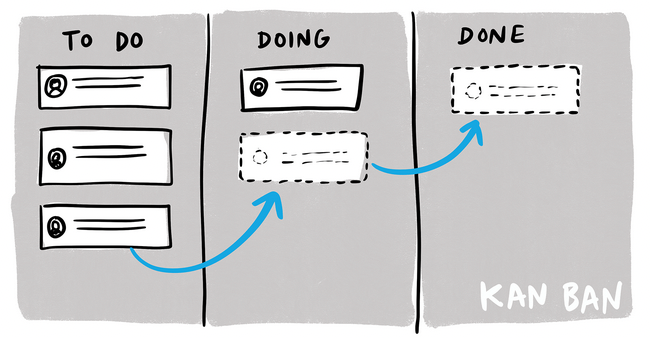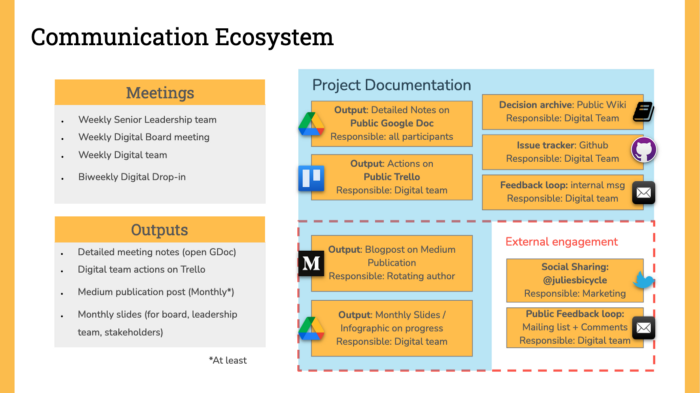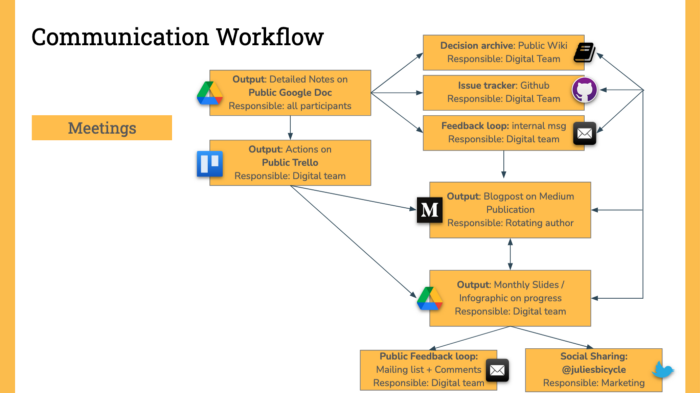Going further with Open Working & Sport England
cross-posted on the the Centre for the Acceleration of Social Technology blog
We Are Open recently ran our second workshop in our deep support programme for the national governing bodies (NGBs) of Sport England. You can check out the whole workshop plan here. Here are 5 practical tips we introduced:
Meeting Notes

Status update meetings are MONUMENTAL waste of people’s time, so take good notes at meetings. You’ll want to appoint a note-taker and collaborate to ensure that the document is as easily-accessible and open as possible. Keep a rolling document for regular meetings and work to minimise people verbalising the “things they’ve done this week/month”. Just get them to write them down ahead of time for everyone to read.
Terms of Reference
Sometimes people are in meetings / at events when they shouldn’t be. More often, we exclude people from meetings and events when they should be.
Create ‘Terms of Reference’ (or “ToR”) for every regular / important meeting or event you run to ensure you’re getting the right people involved. If it can be a ‘community call’, then make it one! Here’s an example of a simple ToR.
“This weekly meeting is for members of the diversity & inclusion working group to make decisions based on proposals raised ahead of time. We aim to include not only representatives from our NGB, but from other NGBs, and our community.”
Communication tools

Some NGBs are already using workplace chat apps such as Slack. Others are still using email as their main ways of interacting with others. Both can be places information and collaboration goes to die. They can be silos.
Think carefully about which platforms you have for communicating internally, amongst organisations in your sector, and with your community / audience. Consider making a diagram of them to show the different options available.
Co-working tools
If status update meetings are so bad, how can we avoid them? One way is by using tools designed to show progress on tasks, such as Trello. As work progresses from ‘To Do’ through ‘Doing’ and to ‘Done’ you can make comments, ask questions, and notify that tasks are complete — all without having to hold a meeting!
CRMs

Customer Relationship Management (CRM) tools such as Salesforce allow you to keep track of interactions with people outside of your organisation. This is particularly useful to keep colleagues up-to-date, your community / audience happy, and you organised! It can also give you insights into the kinds of themes that crop up time and again in conversations and interactions so that you have data to make plans and take action!
There’s more!

Our Learn with WAO platform has loads of tips tricks and free resources (which you can support at Open Collective). We’re also running Open Working sessions to give off-the-cuff feedback and advice to everyone participating in the programme. Come with issues, leave with ideas!